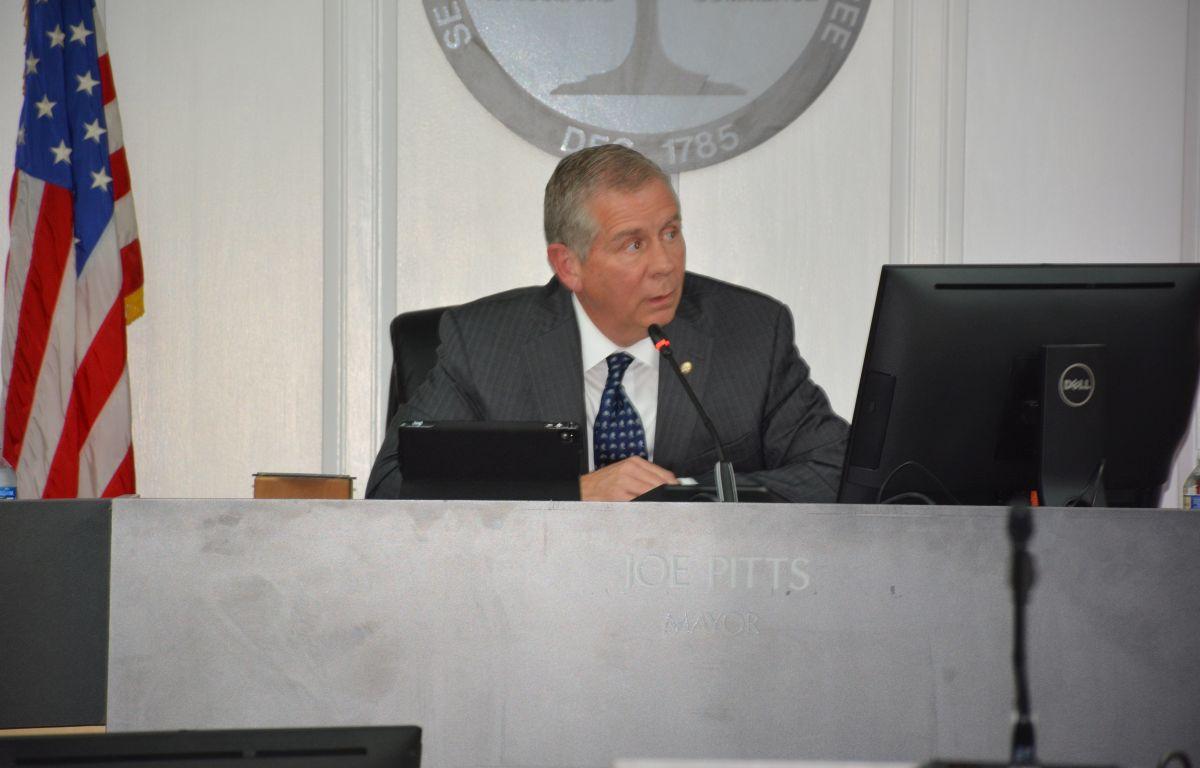CLARKSVILLE, TN (CLARKSVILLE NOW) – The City of Clarksville announced earlier this week that they are extending American Rescue Plan Act (ARPA) premium pay to retired employees as well as the families of deceased employees who worked between March 2020 and March 2022. The announcement followed weeks of deliberation among city officials, and for some, it’s still not enough.
Councilperson Wanda Allen has sponsored two ordinances that would provide additional COVID premium pay, or hazard pay, for city department Heads.
Who got paid what?
The measures went before the City Council on Thursday and sparked discussion again on how the original amounts of ARPA funds were disbursed. Premium pay was originally paid out of the city’s federal ARPA funds, which are also designated for other projects.

“The initial ARPA rules talked about targeting the lower income people because those most at risk of exposure to COVID, because of their jobs, were in the lower income,” said Laurie Matta, Clarksville chief financial officer, on Thursday.
She later explained to Clarksville Now how the amounts were dispersed to employees.
“Guidance was for premium pay to target those making less than 150% of the median income for the State which is about $75,000 for us. For any employee making over the $75,000 we were required to justify why they were paid premium pay, which we did. All employees regardless of salary, except department heads, received up to $7,500 in premium pay based on actual hours worked and/or a monthly proration of time with the City during the 2 year period,” Matta said.
Because of such factors, some employees will make more on their W2 than their department heads at the end of the year, according to Matta.
Cost to the city
The first ordinance would provide up to $6,000 in additional premium pay to all department heads, giving them the full $7,500 amount as opposed to the $1,500 they initially received. With no ARPA funds left, this would cost the city about $142,000.
If that measure fails, Allen has proposed a second ordinance that would pay just four employees the additional $6,000. This measure would cost the city $29,323.
“We have about four directors that do make way less than the other directors, and they only got $1,500 too. This is kind of like a catch. If we can’t get all the other directors, at least we should pay those four,” Allen said. “I would love to see just every single director get paid, but there are four of our directors that do make way less than other directors.”
Mayor Joe Pitts explained that once the guidance came down from the federal government as to how ARPA funds could be spent, it was a decision by the city to pay COVID hazard pay to employees, not a requirement.
“We went in with the value statement that we would pay premium pay if it were eligible, and my value proposition was that everyone should share in it at some level. Because everyone was at risk at some level,” Pitts said.
He also explained why department directors were given less than other employees.
“That was a decision I made. They’re the highest paid employees in each department. It’s not that we don’t value what they do or don’t appreciate what they do; it’s just a matter of trying to get the most money in the hands of those that make the least amount.”
Drawing the line
On Tuesday, the Finance Committee voted for disapproval and discussed these items and their impact on the city’s funds. The general consensus was that it will have to stop somewhere.
“There was no requirement stating that any money had to go to employees,” said Stacey Streetman, council member and chair of the Finance Committee, on Tuesday. “I’ve heard people make the comment that essentially we’re getting into a situation where no good deed goes unpunished.”
Councilperson Brian Zacharias also commented on the idea of expanding COVID hazard pay.
“I don’t like to use the slippery slope analogy, but it went from ARPA funds to now we are getting phone calls from people that aren’t even city employees that are saying, ‘Hey I worked during COVID,” Zacharias said. “This snowball just seems to keep getting bigger and bigger as it rolls down the hill, and we try to include more and more people from different sources. I’m going to be honest, I think at some point, it has to stop.”
The measures will be voted on by the City Council at the next meeting, Oct. 6, at 6 p.m. in the City Council Chambers, 1 Public Square.
Correction: A previous version of this article contained incorrect premium pay distribution factors. It has been updated.


